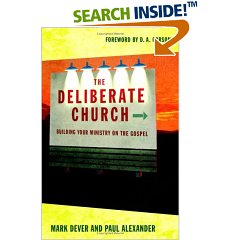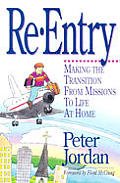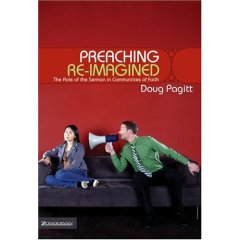
The Irresistible Revolution by Shane Claiborne was recommended by my American friend Kristin. It was a riveting read. I actually finished a little while ago but I have had to take some time to think it through.
The thinkign through process has been very difficult principally because of reading MacArthur's book before hand. The two books are very different.
The Irresistible Revolution seems to be the story of Shane's life. However it is not autobiographical. Rather he uses his life (and others around him) to illustrate the his message. And I should point out that this book is very much a message. It is basically a really long sermon for us, as Christians, to live out our lives in action as he sees Jesus doing.
And this is where it gets difficult.
Shane has a big focus on poverty, the poor and the marginalised. Now do not get me wrong. So did Jesus. This is what is so compelling about the book. This dude is actually living out many aspects of how I can imagine Jesus would live in today's society. And in his own way he is calling all of us to look at ourselves and ask some questions about how we are living.
However he does get a bit "tree huggie - weed smoking - hippie-like" on occassions. And this is where the MacArthur book kicks in. With MacArthur there is all the theology and rules and what's more, for the most part, MacArthur is right. So we get a bit of a conflict. MacArthur goes "this is what God says". God is righteous and just and should be feared (in the trembling sense of the word). Shane goes "this is what Jesus does". We should follow Him because He loves us so much. This is how/why we live with compassion and love for the poor and the oppressed.
Interestingly... both are right!
MacArthur would worry about whether Shane is saved. Shane wouldn't respond because he would be living like Jesus and taking it on the chin. He would however be saddened by some fo the rather American-centric teaching that comes out of MacArthur orientated churches. And he would say so.
This brings me back to my recent thinking about balance in Christian theology and thought. Somehow, I guess in the power of the Holy Spirit, as Christians we have to try to walk this very fine line that Jesus did. This line includes being a pacifist while also being an activist. It involves being compassionate, while also being righteously angry. It involves meeting peoples physical needs while at the smae time dealing with their spiritual needs. The list goes on.
In many ways Christianity is a paradox. In fact almost every aspect, to our human thinking, is a paradox. It is only through the revelation of the Holy Spirit do we see resolution to these paradoxes.
In my own life I am faced with a number of competing issues at the moment that are perplexing and somewhat paradoxical:
...I have a great love and commitment to my local church (OCC) BUT I want to commit my life to the people we love is Siberia
...We are starting a family BUT we need the flexibility to carry out the ministry God has us involved in
...We are involved in many things BUT God seems to be pointing me into full time work
...We are wise to invest some money in renovating our house BUT we are being challenged to give money away
This can go on. Somehow, from experience, I know that God will bring these together in a synthesis that is so much greater than I can imagine. But at the moment they seem almost contradictory.


















